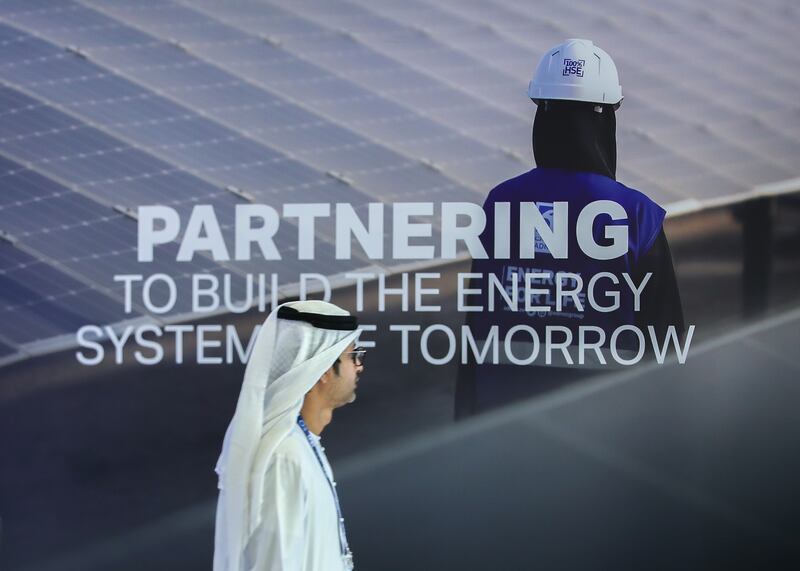Adipec 2023 comes to an end on Thursday and in line with the global focus on climate action ahead of Cop28 in the UAE this year, the Middle East’s largest energy event highlighted oil and gas companies’ efforts to reduce carbon emissions as well as the latest technology transforming the sector.
The event drew more than 2,200 exhibitors and featured high-profile speakers, including energy ministers and chief executives of major oil and gas companies.
With the UN climate summit only weeks away, this year’s Adipec set the stage of what is expected to be a more inclusive and equitable Cop.
We take a look at some of the key takeaways from the event.
Oil and gas companies edge closer to climate action
For years, fossil fuel producers have not been at the table for climate debates and discussions.
But that is expected to change at this year’s Cop28 amid the growing recognition that investment in all forms of energy is necessary to meet global challenges.
At Adipec, Cop28 President-designate Dr Sultan Al Jaber said more than 20 oil and gas companies had “positively answered” the call for climate action, and that no other industry could manage the "complexity, depth of knowledge, capital, technology and scale that is needed for the task at hand".
Everyone must be at the table to make transformational progress, Dr Sultan Al Jaber says
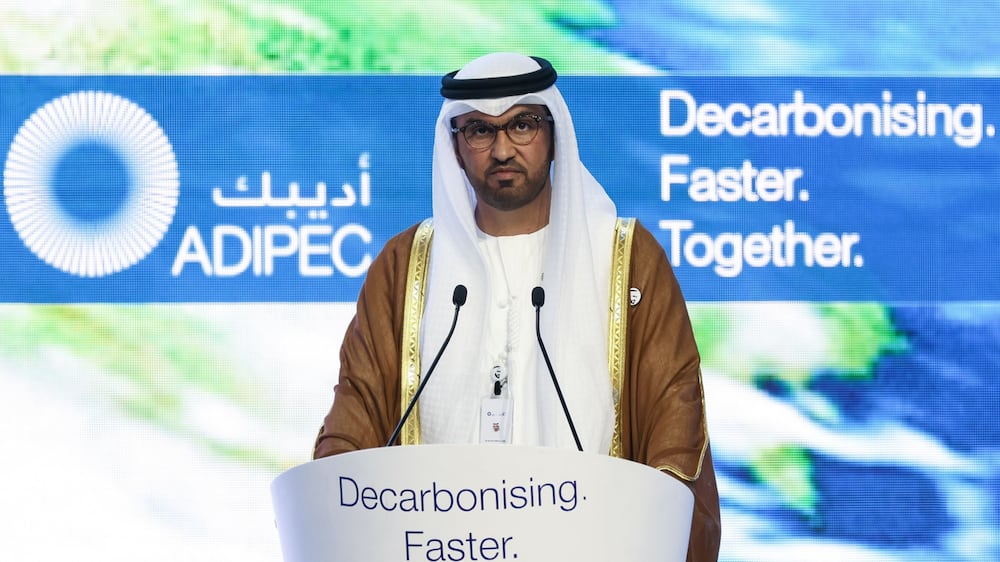
TotalEnergies chief Patrick Pouyanne said: “We are scapegoats for climate change, we are scapegoats for the [oil] price … but [in] the end our job is to continue to provide affordable and available energy to society."
Encouraging number of technology agreements
A large number of deals signed at this year’s Adipec were focused on technology as companies look to boost efficiency and lower emissions.
Adnoc awarded a contract valued at more than $400 million to US oilfield technology company Baker Hughes for the supply of all-electric compression systems for its liquefied natural gas project in Ruwais.
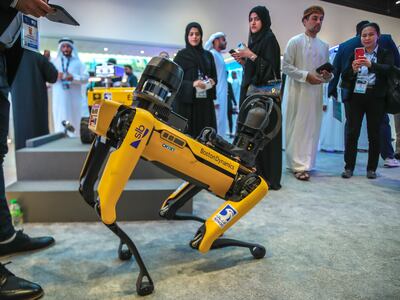
The Abu Dhabi-based energy company and Occidental Petroleum also signed an agreement to undertake a joint preliminary engineering study to build the first megaton-scale direct air capture plant outside the US.
Meanwhile, Adnoc Gas awarded a $615 million contract to oil services company Petrofac to build one of the largest carbon capture projects in the Mena region.
Clean energy push
Clean energy adoption has been gathering pace in the Emirates and this was demonstrated through a UAE-made electric vehicle showcased at Adipec.
The Rabdan One, a five-seater SUV, featured prominently at the Ministry of Industry and Advanced Technology’s booth.
UAE-made Rabdan One electric vehicle takes centre stage at Adipec
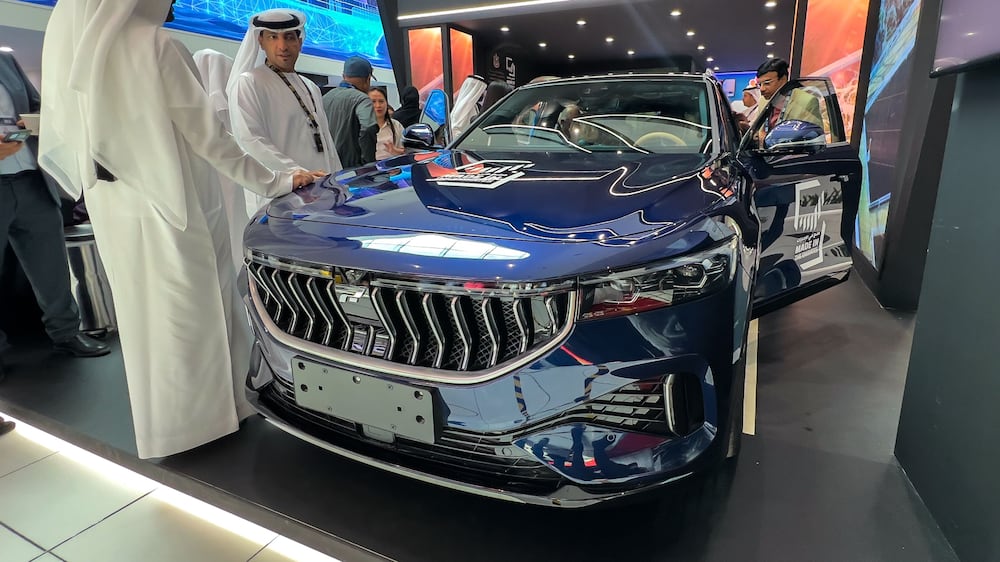
Abu Dhabi clean energy company Masdar has also continued its investment in global renewable energy projects.
MW Energy, a venture between Masdar and W Solar Investment, signed an initial agreement with Tajikistan to explore clean energy projects, marking its entry into the Central Asian nation.
Masdar and US aerospace major Boeing have also teamed up to help advance the sustainable aviation fuel (SAF) industry in the Emirates and beyond.
Undersupplied market
Energy executives once again used the Adipec platform to emphasise the need for investment in the oil and gas sector, in which spending has reached record low levels.
Opec secretary general Haitham Al Ghais warned underinvestment posed a severe risk to energy security.
The oil and gas industry will require $14 trillion, or $600 billion a year, in investment from now until 2045 to ensure energy security, he said.
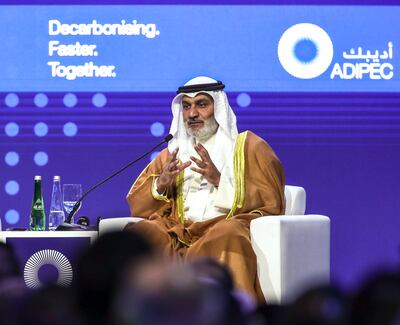
“Everybody thinks [it] is just investing in producing oil, but you also have to see the whole value chain,” Mr Al Ghais said.
Suhail Al Mazrouei, Minister of Energy and Infrastructure, added concerns over an undersupplied market in the long term, not the short term.
He said Adnoc's plan to step up production to 5 million barrels per day by 2027 "may not be enough" to meet growing oil and gas demand across the globe.
